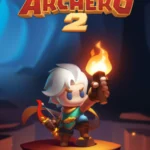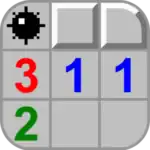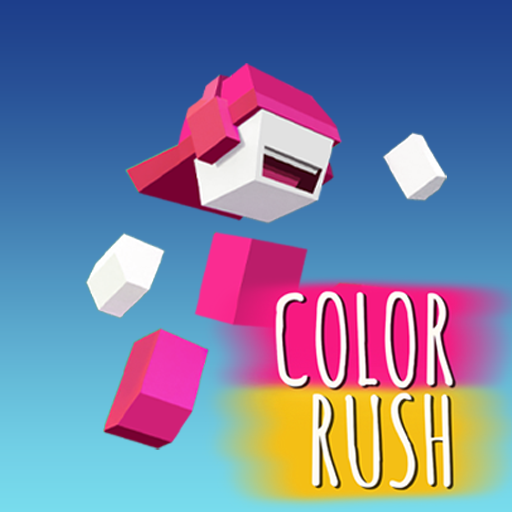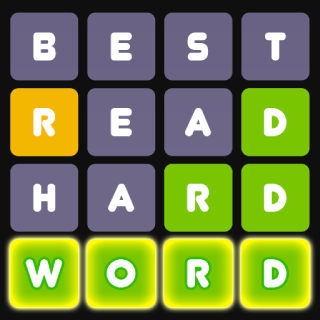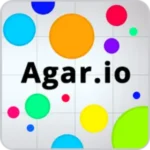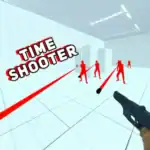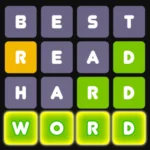Top Browser Detective Mystery Games: Uncover Clues & Solve Cases Online
Step into the shadowy world of intrigue and logic, where every pixel holds a potential clue and every character harbors a secret. In an age dominated by high-fidelity graphics and massive downloads, a quiet revolution is thriving: the rise of browser detective games. These captivating experiences offer the thrill of solving complex cases without the commitment of installing large files, making them the ultimate choice for quick-thinking sleuths on the go. Whether you’re a seasoned gumshoe or a curious newcomer, the realm of online mystery games provides an endless labyrinth of puzzles to unravel. From grisly murders to baffling disappearances, these titles challenge your perception, sharpen your deduction skills, and immerse you in compelling narratives. Get ready to embark on exhilarating browser-based detective adventures, where the only limit is your investigative prowess.
The Enduring Allure of Browser Detective Games: Why We Love to Solve Online
There’s an undeniable charm to donning the digital deerstalker and delving into a mystery from the comfort of your web browser. The accessibility of free mystery online games is a significant draw; no barriers to entry mean you can jump straight into a case the moment inspiration strikes. These games often boast intuitive interfaces, focusing purely on the intellectual challenge rather than complex controls. The gratification of piecing together fragmented evidence, interrogating suspicious characters, and ultimately unveiling the truth is a powerful hook. Furthermore, the diverse narratives range from classic whodunits to futuristic cyberpunk puzzles, ensuring there’s always a fresh challenge. It’s the perfect mental workout, accessible anytime, anywhere, a true testament to the evolution of interactive storytelling on the web.
The Mechanics of Deduction: How Browser Detective Games Work
At their core, browser detective games are built on foundational mechanics that mirror real-world detective work, albeit simplified for interactive play. The primary loop involves clue gathering, deduction, and often, some form of interaction with suspects or witnesses. Clues might appear as hidden objects in a scene, cryptic notes, unusual dialogue, or even environmental details. Players must meticulously observe and collect these pieces of information. Deduction comes into play as players connect these disparate clues, forming hypotheses and eliminating possibilities. Many online mystery games feature an in-game journal or evidence board where players can review collected items, often with hints or logical links highlighted. Interrogation sequences might involve choosing dialogue options to extract information, or presenting evidence to break a suspect’s alibi. The best titles seamlessly integrate these elements, making the process of solving cases feel organic and deeply rewarding.
Navigating the Labyrinth: Essential Features of Top Browser Detective Games
When seeking the best browser mystery games, several features stand out, elevating a simple puzzle into a truly immersive investigative experience. A compelling narrative is paramount; a well-crafted story with intriguing characters and unexpected twists keeps players hooked. Intuitive navigation and clear objectives prevent frustration, allowing the player to focus on the puzzle itself. The way clues are presented is also crucial: are they too obvious, or unfairly obscure? The ideal balance provides just enough challenge to make the solution feel earned. Moreover, the ability to revisit locations, review evidence, and track suspect profiles (even if implicitly through dialogue logs) enhances the feeling of being a true sleuth. Sound design and atmospheric visuals, even simple ones, can significantly enhance immersion, drawing the player deeper into the mystery. The replayability factor, whether through branching narratives or randomized elements, also adds long-term value to these play detective games online experiences.
Unraveling the Truth: Mastering Clue Maps and Suspect Profiles
While few no download case files games explicitly label “clue maps” or “suspect profiles” as distinct in-game features, the underlying concepts are crucial to successful play. A “clue map” refers to the player’s internal or external system for tracking discovered evidence, locations visited, and connections between them. This could be as simple as mental notes, or as advanced as an in-game inventory system that allows you to combine items or highlight interactions. Effective players often mentally construct a spatial understanding of the crime scene and relevant locations, noting where each piece of evidence was found. “Suspect profiles,” similarly, are built through careful observation and interaction. This involves noting their alibis, motives, relationships to the victim, and reactions to questioning. The keenest sleuth browser adventures compel players to pay attention to character quirks, inconsistencies in their stories, and non-verbal cues. Even without formal in-game tools, mastering these mental organizational techniques is key to dominating any online mystery.
The Cutting Edge of Online Investigations: Browser Detective 2025
As we look towards the future, the landscape of browser detective 2025 is poised for exciting advancements. Expect to see more sophisticated AI-driven narratives, where suspects react dynamically to your line of questioning, and evidence subtly changes based on your earlier discoveries. The integration of more advanced puzzle types, moving beyond simple hidden objects to complex ciphers and logical deduction grids, will challenge players further. Multiplayer cooperative detective games, where teams of players must pool their findings to solve a larger case, are also on the horizon, offering a new social dimension to solve mysteries browser experiences. Furthermore, improved accessibility features, enhanced visual storytelling within browser environments, and perhaps even voice-activated controls could revolutionize how we interact with these captivating cases. The line between traditional downloadable games and browser-based experiences will continue to blur, making web-based investigations even more robust and immersive.
Discover more about how browser games are evolving and what the future holds by visiting How Browser Games Have Evolved Over The Years.
Featured Browser Detective Games: A Dozen Cases to Crack
To truly appreciate the depth and breadth of this genre, let’s delve into 12 exemplary browser detective games, each offering unique challenges and compelling narratives. These titles represent some of the top online detective games available, providing hours of engaging investigation for any aspiring sleuth.
1. The Case of the Emerald Enigma
Genre: Point-and-Click Mystery
Premise: A renowned gemologist is found dead, his prized emerald missing. You play as a private investigator hired by the family to retrieve the gem and find the killer before the police mishandle the case. The game is set in a series of lavish, hand-drawn rooms within a mansion. Players gather clues by clicking on objects, solving mini-puzzles to unlock new areas or access hidden compartments. The game excels in its intricate item combinations, requiring logical leaps to progress.
Clue Map Concept: Players utilize an in-game notepad to jot down suspicious observations and item locations. A visual map of the mansion highlights rooms with remaining unexamined areas. Key evidence, once found, is automatically added to an inventory, and related items will subtly glow when near each other, hinting at combinations.
Suspect Profiles: The three main suspects – the jealous apprentice, the disgruntled housekeeper, and the rival collector – are introduced through dialogue and scattered documents. Their profiles are built implicitly through their responses to your questioning and the evidence you present. Each has a motive and a shifting alibi, requiring careful cross-referencing of facts gleaned from letters, diaries, and witness statements. Uncovering their true nature is central to solving the murder.
2. Chronicles of Eldoria: The Missing Archivist
Genre: Text-Based RPG with Detective Elements
Premise: In a magical fantasy realm, the Grand Archivist vanishes, and a critical prophecy scroll with him. As a magical investigator, you navigate a rich narrative through text choices, visiting fantastical locations, interviewing mythical creatures, and deciphering ancient runes. Success depends entirely on your ability to read between the lines and make logical deductions from the extensive dialogue.
Clue Map Concept: Due to its text-heavy nature, the “clue map” is primarily mental, but an in-game log tracks all dialogue and discovered lore snippets. Certain keywords are highlighted, and clicking them brings up related notes. A simple quest log outlines current objectives, nudging the player towards specific areas or characters based on their deductions.
Suspect Profiles: Suspects include a reclusive wizard, a mischievous forest spirit, and a power-hungry noble. Their profiles are entirely built through dialogue branches, where inconsistencies in their stories or emotional reactions to certain questions serve as red flags. Players must piece together their backstories and motivations from multiple conversations and cross-reference them with the timeline of the disappearance.
3. Pixel P.I.: The Case of the Retro Robbery
Genre: Pixel Art Point-and-Click
Premise: A classic arcade has been robbed of its prized ‘Golden Joystick’. You’re a hard-boiled pixelated private eye in a charmingly retro cityscape. The game involves examining pixelated scenes for minute details, solving simple environmental puzzles, and engaging in quirky dialogue with NPCs, all within a nostalgic aesthetic.
Clue Map Concept: A stylized 8-bit map allows fast travel between key locations. Found clues, such as a dropped arcade token or a security camera photo, are displayed in a simple inventory bar. Some clues can be “examined” more closely, revealing hidden details or annotations. The game subtly guides players by making interactive elements slightly brighter.
Suspect Profiles: The suspects are a motley crew of arcade regulars: the grumpy janitor, the suspiciously skilled high-scorer, and the mysterious gamer who only plays at night. Their profiles are formed by short, humorous dialogue exchanges. Players look for contradictions in their alibis or unusual knowledge of the arcade layout, using collected items to prompt specific responses or reveal their true nature.
4. Enigma Falls: A Hidden Object Murder Mystery
Genre: Hidden Object with Interrogations
Premise: In the quiet, picturesque town of Enigma Falls, a beloved artist is found dead in her studio. You are an amateur sleuth who must meticulously search detailed scenes for hidden objects that serve as clues. Each successful scene unlocks new areas and dialogue options, pushing the narrative forward.
Clue Map Concept: A visual “crime scene map” displays the locations you’ve visited and highlights areas where more clues can still be found. Hidden objects become entries in your evidence log, which automatically categorizes them. Certain key objects, once found, are visually linked to potential suspects on a separate “link board,” showing connections.
Suspect Profiles: The town has a small cast of characters, each with secrets: the art critic, the rival painter, and the deceased’s estranged family member. Their profiles are built through a series of timed interrogation mini-games, where you present evidence to challenge their statements. Successfully breaking their alibis or uncovering their motives contributes to a detailed profile summary in your case file.
5. Cipher Creek: A Digital Escape Room Mystery
Genre: Puzzle-Focused Detective Game
Premise: You awaken in a locked, virtual room with no memory, and cryptic messages appear on a nearby monitor, hinting at a larger conspiracy. The game is a series of interconnected digital escape rooms, each requiring players to solve intricate logic puzzles, decode ciphers, and find hidden codes to progress and piece together the narrative of what happened.
Clue Map Concept: The “clue map” here is more abstract; it’s a progression tracker showing which digital environments have been cleared and which puzzles are still active. All found fragments of code, passwords, or decrypted messages are stored in a digital “data log” that can be cross-referenced. Specific symbols or numbers found in one area might be required in another, forming a web of clues.
Suspect Profiles: The “suspects” are less traditional characters and more unseen entities or rogue AIs. Their “profiles” are constructed by analyzing digital footprints, hacking into virtual servers, and decoding their communications. You build a picture of their motives and capabilities by interpreting the data, turning the investigation into a true digital excavation.
6. The Spectral Detective: Haunting of Blackwood Manor
Genre: Paranormal Mystery Adventure
Premise: A team of paranormal investigators vanishes inside the infamous Blackwood Manor. You, a gifted psychic detective, are called in to find them and uncover the dark secrets of the house, communicating with lingering spirits to gather clues. The game blends traditional point-and-click with unique spiritual interaction mechanics.
Clue Map Concept: A spectral map of Blackwood Manor indicates areas with strong paranormal activity or lingering echoes of past events. Clues come in the form of ethereal objects, whispers heard only at specific locations, or visions triggered by interacting with haunted items. These are added to a “spiritual journal,” which highlights their connection to various tragic events in the manor’s history.
Suspect Profiles: The “suspects” are the spirits themselves – the former residents, victims, and perpetrators of past crimes. Their profiles are built by piecing together their fragmented memories and emotional imprints. You learn their identities, motives for haunting, and how they relate to the vanished investigators by observing their spectral manifestations and deciphering their cryptic messages.
For those who love to delve into deep stories, explore Best Browser Based RPGs 2024.
7. Detective Grimoire and the Swampy Suspect
Genre: Interactive Comic Book Mystery
Premise: Based on the popular character, this browser adventure sees Detective Grimoire investigating a strange murder in a murky swamp. The game features hand-drawn comic panel visuals, where players click on speech bubbles and objects to progress, making deductions by linking observations to character statements.
Clue Map Concept: Each comic panel acts as a mini-scene. Found clues (e.g., a footprint, a strange plant, a specific type of mud) are collected into a visual inventory grid. The game features a “deduction board” where players drag and drop relevant clues onto character portraits or into concept bubbles to form logical connections.
Suspect Profiles: The quirky swamp residents – a frog-man, a reclusive botanist, and a shifty fisherman – are the suspects. Their profiles are developed through engaging, often humorous dialogue. The game highlights contradictions in their stories, prompting players to use evidence to corner them or reveal new information, building a picture of their involvement in the crime.
8. The Museum Heist: A Timed Investigation
Genre: Time-Sensitive Logic Puzzle
Premise: A priceless artifact has been stolen from a museum, and you have only one hour (in-game time) to interview witnesses, examine security footage, and discover who the culprit is before they escape. The game emphasizes quick thinking and efficient clue gathering under pressure.
Clue Map Concept: A timer constantly ticks down, adding urgency. The museum map shows available rooms, with icons indicating active clues or witnesses. Clues like security logs, broken display cases, or witness testimonies are added to a concise evidence list. The challenge is deciding which clues to prioritize given the time limit.
Suspect Profiles: The suspects are the museum staff and a handful of VIP guests. Their profiles are built rapidly through concise interviews. Players must identify their locations at the time of the heist and any suspicious behavior, noting inconsistencies in their alibis or motivations that would drive them to steal the artifact. The limited time forces players to make quick judgments about who is most suspicious.
9. Missing Pieces: A Narrative-Driven Search
Genre: Narrative Hidden Object / Deduction
Premise: Following a catastrophic event, a small community is left shattered, and a key individual has vanished. You piece together the story of their disappearance by searching highly detailed, cluttered scenes for fragments of letters, photographs, and personal items that slowly reveal the truth.
Clue Map Concept: Each scene is part of a larger, non-linear “memory map.” As new clues are found, new memories or locations become accessible. The “clue map” is represented by a scrapbook where collected items are arranged, and the player must manually link them together to form a coherent timeline or narrative strand.
Suspect Profiles: The “suspects” aren’t necessarily criminals but individuals whose actions or inaction led to the disappearance. Their profiles are implicitly formed through the items you find that belong to them or shed light on their personalities and relationships. The player acts as an archaeologist of the past, uncovering the emotional and logical reasons behind the central mystery.
If you enjoy quick challenges, explore Best Quick Online Games.
10. The Detective’s Office: Daily Case Files
Genre: Mini-Case Puzzle Collection
Premise: You run a small detective agency, and each day brings a new, bite-sized mystery to solve – from petty theft to bizarre local phenomena. These are generally standalone puzzles focusing on a specific type of deduction, making it perfect for short bursts of play.
Clue Map Concept: Each “case file” has its own small scene or two. Clues are specific to that puzzle and usually involve observing patterns, cracking simple codes, or arranging items. The “clue map” is essentially the brief list of evidence presented for that specific case, challenging players to make a single, sharp deduction.
Suspect Profiles: Given the mini-case format, suspect profiles are very concise. They are usually presented with a brief description and their alibi, and the player must find the one key piece of evidence that contradicts their story. The game encourages rapid identification of logical fallacies or direct contradictions.
11. Whodunit Web: Collaborative Mystery Game
Genre: Social Deduction / Collaborative Mystery
Premise: This unique online mystery game allows multiple players (or AI companions) to investigate a case together, each discovering different fragments of information. Communication and sharing clues are vital to solving the overarching mystery. While often played with friends, a solo mode allows you to control multiple “agents.”
Clue Map Concept: A shared “evidence board” is central to this game, where all collected clues (documents, photos, witness statements) are visible to all participating players. Each player might have access to different locations or unique interactions, contributing specific pieces to the collective “clue map.” Linking mechanisms allow players to draw connections between items and theorize publicly.
Suspect Profiles: Suspect profiles are collaboratively built. As each player interviews a character or discovers information about them, details are added to a shared dossier. Contradictions or suspicious behaviors highlighted by one player can be cross-referenced by others, leading to a richer and more complete profile for each potential culprit. The real challenge is determining who among the players is the best at connecting the dots, or perhaps, if there’s a saboteur amongst the group.
12. The Midnight Case Files: A Cold Case Reopened
Genre: Archival Investigation / Document Analysis
Premise: You take on the role of a fresh-faced detective tasked with revisiting a decades-old, unsolved murder. The game presents you with a meticulously crafted collection of scanned documents: police reports, newspaper clippings, handwritten letters, and cryptic photographs. Your job is to sift through this archive to find the overlooked detail that cracks the case.
Clue Map Concept: The entire game functions as a sprawling “clue map” of interconnected documents. Players can highlight keywords, cross-reference names, and annotate documents within the game interface. A timeline feature helps organize events, and a “red string board” allows players to manually draw lines connecting documents, suspects, and pieces of evidence. The depth of detail in the documents is the game’s strength.
Suspect Profiles: Suspects are historical figures whose actions and statements are embedded within the archival documents. Their profiles are constructed entirely from what you read: their alibis from police reports, their motives from letters, and their relationships from newspaper articles. The challenge lies in distinguishing truth from falsehood within historical records and identifying the subtle biases or omissions that led to the original case going cold. This game truly tests your analytical reading and synthesis skills to build compelling, multi-faceted profiles.
For more brain-teasing adventures, check out Best Puzzle Browser Games.
Advanced Sleuthing Strategies for Browser Detective Games
To truly excel in online mystery games and become a master of no download case files, adopt these advanced strategies:
- Systematic Scene Examination: Don’t just click randomly. Scan every inch of a scene. Start from one corner and systematically move across, ensuring no pixel goes unexamined. Change your perspective if the game allows it.
- Contextual Clue Analysis: A clue isn’t just an object; it’s an object *in a specific place*. Consider its position, relation to other items, and any implied narrative. Why is that specific item there? What does its state tell you?
- Dialogue Dissection: In games with character interactions, pay close attention to nuances. Look for:
- Contradictions: Do their statements align with evidence or other testimonies?
- Evasiveness: Do they deflect certain questions?
- Emotional Cues: Do their reactions to specific topics seem disproportionate?
- Unsolicited Information: Do they volunteer information that seems out of place or designed to mislead?
- Reverse Engineering: Once you have a collection of clues, try to work backward from potential solutions. If “Person X” is the culprit, how would all the clues logically lead to them? If a piece of evidence doesn’t fit a theory, that theory is likely flawed.
- Timeline Construction: For complex cases, manually create a timeline of events. Note down when specific actions occurred, when individuals were seen, and when evidence appeared. Discrepancies in the timeline are often the weakest links in an alibi.
- Motive, Means, Opportunity: These are the pillars of any investigation. As you build suspect profiles, constantly assess if they possessed the motive (why they would do it), the means (how they could do it), and the opportunity (when and where they could do it). A strong case requires all three.
- “What If” Scenarios: Don’t be afraid to entertain seemingly outlandish theories in your head. Sometimes, the most unexpected solution is the correct one. Play out “what if” scenarios based on different suspects or interpretations of clues.
- External Note-Taking: While many games offer in-game journals, a physical notepad or a digital document outside the game can be invaluable. It allows for free-form thinking, drawing connections, and sketching out mental maps without game interface limitations.
- Revisit and Re-examine: If you’re stuck, go back to square one. Revisit every location, re-read every document, and re-question every suspect. You might have overlooked a crucial detail or a new connection will emerge after gaining more information.
The Evolution and Future of Browser-Based Sleuthing
The journey of browser detective games is far from over. From their humble beginnings as simple hidden object puzzles, they have blossomed into sophisticated narratives that rival their downloadable counterparts. The ease of access – the ability to play instantly, without downloads – remains their strongest asset, driving their immense popularity. As web technologies advance, we can anticipate even richer graphics, more complex storylines, and innovative gameplay mechanics that push the boundaries of what’s possible within a browser. The integration of community features for collaborative sleuthing, the proliferation of procedural generation for endless replayability, and the rise of AI-driven narrative branches promise to redefine the genre. These games are not just pastimes; they are training grounds for critical thinking, observation, and logical deduction, making them an invaluable part of the online gaming ecosystem. The future of free browser detective games is bright, promising an endless stream of cases for the eager online investigator.
Learn more about playing browser games without downloads at How to Play Free Browser Games Without Downloading.
The Impact of AI and Emerging Technologies on Browser Detective Games in 2025
The year browser detective 2025 will usher in a new era for online mystery games, largely powered by advancements in artificial intelligence. AI is no longer just for character pathfinding; it’s becoming a narrative engine. Imagine NPCs in sleuth browser adventures that remember your previous questions, adapt their lies based on evidence you’ve shown, and even generate new, believable alibis on the fly. This will make interrogations far more dynamic and less predictable. Furthermore, natural language processing (NLP) could allow players to type in free-form questions to suspects, rather than choosing from pre-set options, leading to a truly immersive investigative dialogue. Procedural content generation, enhanced by AI, means a game could create an infinite number of unique cases, each with distinct clues, suspects, and motives, offering unparalleled replayability for solve mysteries browser enthusiasts. Virtual and augmented reality, even in a simplified browser form, could offer new ways to examine crime scenes, allowing players to manipulate digital objects in a 3D space directly in their browser window. These technologies will deepen immersion, increase complexity, and keep the genre fresh and engaging for years to come.
Community and Collaboration: The Social Side of Online Mystery
While often solitary affairs, browser detective games are increasingly embracing community and collaborative elements. Online forums and dedicated subreddits buzz with discussions about difficult cases, shared theories, and collective clue-hunting. Some games even integrate direct multiplayer components, transforming the solo investigative experience into a shared challenge. Imagine a team of detectives, each focusing on a different aspect of a case – one on forensic analysis, another on witness interviews, and a third on background checks – then pooling their findings to collectively solve mysteries browser-wide. This not only enhances the social aspect of gaming but also introduces new layers of complexity, as players must not only solve the case but also effectively communicate and coordinate. The rise of streaming platforms also means a new way to engage, with viewers acting as armchair detectives, pointing out clues or suggesting theories to the streamer. This communal engagement ensures that the world of online mystery games continues to thrive and innovate.
For more about multiplayer experiences, check out Best Multiplayer Browser Games.
Maintaining Engagement: Replayability and New Content
For top online detective games, replayability is crucial. While a linear mystery might be engaging once, the truly great titles offer reasons to return. This can come in the form of multiple endings based on choices, hidden “bonus” clues that unlock deeper lore, or even procedurally generated elements that ensure each playthrough feels fresh. Developers of free browser detective games are also increasingly using episodic releases, dropping new cases periodically to keep players engaged and the narrative expanding. Community challenges, leaderboards for fastest solve times, or even user-generated content (if the platform allows) can significantly extend the lifespan of a browser-based mystery. The desire to uncover every secret, to achieve the “perfect” investigation, or simply to experience a well-crafted story again with a fresh perspective keeps players coming back, ensuring a vibrant and active player base for these captivating games. The quest for justice, or at least the truth, is an endless one for the dedicated online sleuth.
Explore the vast world of free browser games at Top 15 Free Browser Games You Can Play Right Now No Download Required.
Conclusion: The Future is Unlocked for Browser Sleuths
The world of browser detective games offers an unparalleled blend of accessibility, intellectual challenge, and compelling storytelling. From the moment you click play, you’re transported into a world where your wits are your most powerful weapon, and every detail matters. We’ve explored the core mechanics that make these online mystery games so engaging, from meticulous clue gathering to the art of piecing together suspect profiles, even without explicit in-game “clue maps.” As we move into browser detective 2025 and beyond, the genre is poised for remarkable growth, driven by advanced AI, richer narratives, and innovative multiplayer experiences. The 12 reviewed games demonstrate the incredible diversity and depth already present, proving that high-quality investigative adventures don’t require hefty downloads. So, whether you’re seeking a quick mental workout or a deep dive into a convoluted conspiracy, the next great case is always just a browser tab away. Embrace your inner Sherlock and begin your next thrilling browser-based detective adventure.
Further Reading and Resources for Aspiring Detectives
- IGN – Gaming News & Reviews
- GameSpot – Video Game News, Reviews, & Guides
- Wikipedia – Mystery Fiction
- Adventure Gamers – Point-and-Click Adventure Game Reviews
- Gamasutra – The Art & Business of Making Games
- Itch.io – Indie Detective Games
- Rock Paper Shotgun – PC Game News, Reviews, Features
- Puzzle Games Online
- Steam – Detective Tag (for inspiration)
- FreeGames.com – Browser Games


